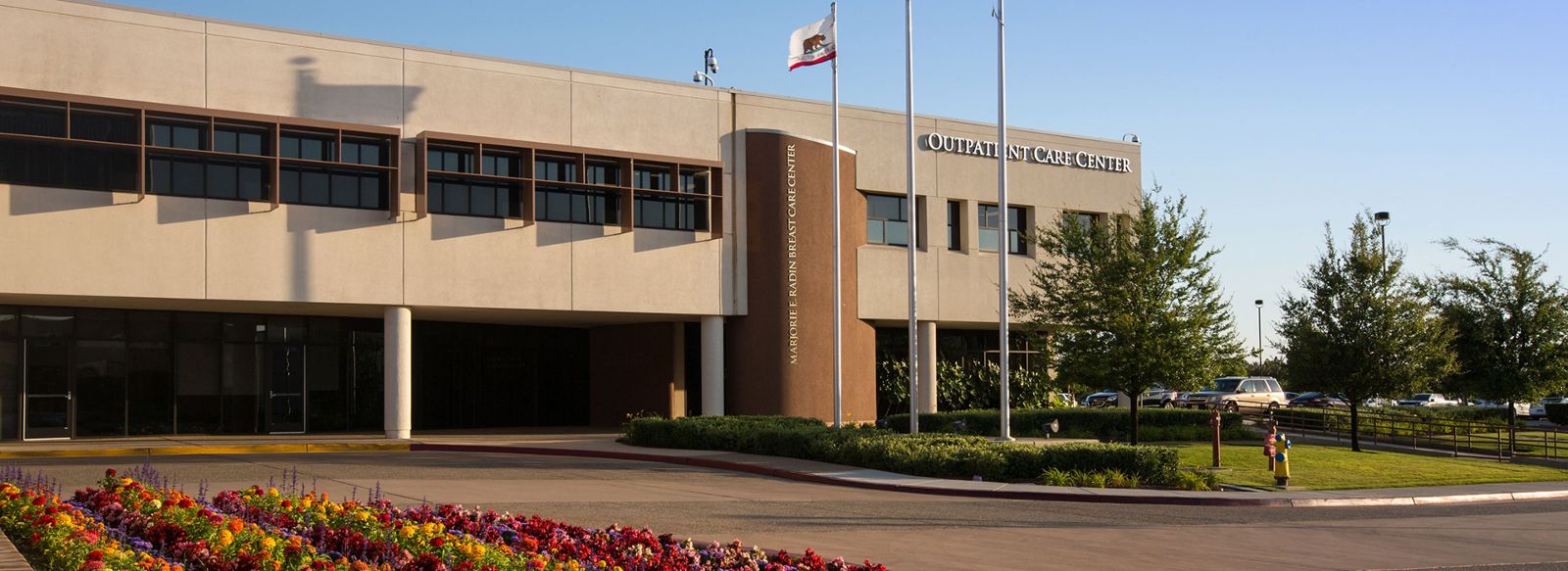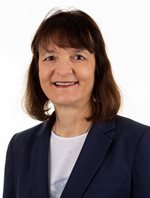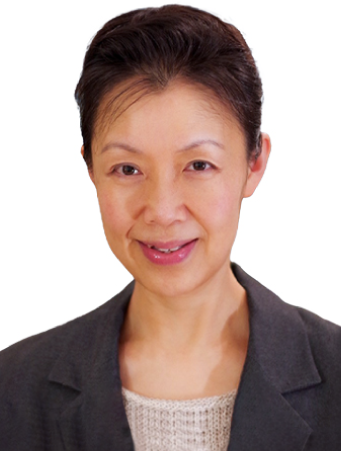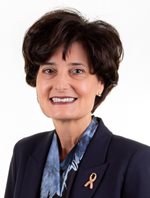
Cancer Care (hm) Menu
Cancer Care (hm) Menu
Early Detection • Advanced Treatment
Comprehensive Care
Treatment for breast cancer can often include a combination of surgery, radiation therapy, genetic testing and medication. Too often, patients feel they’re being bounced from office to office for the care they need.
We take a different approach to breast care.
At the Marjorie E. Radin Breast Care Center, we not only have state-of-the-art imaging technology for detecting breast conditions, but also a complete team of specialists for follow-up when needed — all in one place.
These specialists are experts in imaging, diagnostics, surgery, pathology, cancer care and emotional support, and they meet together to coordinate a custom treatment plan tailored to your specific needs. Your nurse coordinator assists in scheduling and managing appointments while providing care and education so you can focus on getting better.
For more information, or to make an appointment, call (559) 324-4444.
Mammography & Other Detection Services
Because mammography remains our most effective tool in the early detection of breast cancer, we have convenient screening appointments, including Saturdays.
Digital mammography allows doctors to see subtle differences in breast tissue that traditional film mammograms do not. In standard mammograms, images are recorded on film using an X-ray cassette. The film is then viewed by the radiologist using a "light box" and then stored in a jacket in the facility's archives.
With digital mammograms, the breast image is captured using a special electronic X-ray detector, which converts the image into a digital picture for review on a computer monitor. The digital mammogram is then stored on a computer.
The magnification, orientation, brightness and contrast of the image in digital mammography may be altered after the exam is completed to help the radiologist more clearly see certain areas.
That means more accurate diagnoses and fewer biopsies. Digital mammograms are faster – delivering less radiation exposure and giving faster feedback to patients.
With digital mammograms, the breast image is captured using a special electronic X-ray detector, which converts the image into a digital picture for review on a computer monitor. The digital mammogram is then stored on a computer.
The magnification, orientation, brightness and contrast of the image in digital mammography may be altered after the exam is completed to help the radiologist more clearly see certain areas.
That means more accurate diagnoses and fewer biopsies. Digital mammograms are faster – delivering less radiation exposure and giving faster feedback to patients.
Using sophisticated computer software, CAD works essentially as a second opinion of the radiologist’s interpretation of a woman’s mammogram. The software marks even the smallest breast abnormalities on the mammogram image, so the radiologist can take another look and determine if further tests are required. The radiologist still makes the final interpretation of the mammogram.
Tomography (also known as 3D mammography) can be used for all women. However, women with dense breast tissue may benefit the most since dense breast tissue tends to overlap and can hide cancer.
Currently, 3D mammography is performed in combination with 2D mammography with same views, positioning and compression. A 3D mammogram is made by computer reconstruction of images obtained while the machine sweeps over the breast in an arc - sometimes in as little as 4 seconds for average size breasts. The images are taken at different angles so the computer can turn 2D into 3D. The radiologist can view them as moving pictures.
Benefits of 3D mammography
-
Elimination of overlapping, compressed breast tissue improves our ability to find cancer earlier or find cancer that may be missed on 2D mammography alone.
-
Better visualization of fine details.
-
Greater accuracy determining size, shape and location of abnormalities.
-
Reduction in the number of call backs for additional mammograms - reduction of stress for women
-
Decrease in false positives (abnormality identified on the mammograph that is NOT cancer)
-
20-40% decrease in the mortality rate of breast cancer
Follow-Up Diagnostics
Most women who get mammograms find they are in good health. But in cases where abnormalities are found, additional tests may be needed. The good news is, about 80% of women who find abnormalities in their mammograms don't have cancer.
The Radin Breast Care Center offers technologies and services that allow your doctor to go beyond mammography and get a closer look at your health.
Breast MRI is a test used to detect breast cancer and other abnormalities in the breast. Breast MRI is used when your doctor needs more information than a mammogram, ultrasound or clinical breast exam can provide.
Breast MRI captures multiple pictures of your breast and images are combined, using a computer, to generate detailed pictures needed to obtain images with high quality and clarity.
Breast MRI captures multiple pictures of your breast and images are combined, using a computer, to generate detailed pictures needed to obtain images with high quality and clarity.
The Veranda technology provides the latest in imaging technologies for 3-dimensional breast biopsy. Paired with new 3D mammography, this biopsy system is able to detect 40% more invasive breast cancers than traditional mammography imaging alone. And, more than 80% of brease biopsies are normal.
Advantages of using this new breast biopsy technique include faster targeting with a shorter patient procedure time and fewer X-ray exposures resulting in a reduced X-ray dose.
Advantages of using this new breast biopsy technique include faster targeting with a shorter patient procedure time and fewer X-ray exposures resulting in a reduced X-ray dose.
Stereotactic Core Biopsy uses X-rays taken from multiple angles to pinpoint the center of irregular breast tissue. Taking a sample from the tissue core allows physicians to remove a small amount of tissue without the incisions, anesthesia and scarring associated with traditional biopsies.
This procedure uses multiple images to pinpoint and sample abnormal breast tissue. There is less scarring, faster results and less pain than with traditional biopsies.
This is a technique that allows a biopsy of various bumps and lumps. It allows for enough tissue to be retrieved for microscopic analysis to make an accurate diagnosis.
Cyst aspiration uses a small needle to drain fluid from a cyst. Doing so can help your doctor find out if the lump you feel is a cyst or not.
Lymphedema is the swelling of the arm caused by an abnormal accumulation of protein rich fluid and can occur after breast cancer surgery, lymph node removal or radiation treatments.
This is a chronic condition which can worsen over time causing limited range of motion, repeated infection with possible hospitalization and a decrease in ability to care for oneself. Symptoms include swelling, aching, tightness, heaviness and acute or chronic infections.
Treatment consists of manual lymph drainage, application of compression bandages and garments, and education for precautions and self-management techniques. We offer one-on-one treatment sessions with a certified lymphedema therapist.
This is a chronic condition which can worsen over time causing limited range of motion, repeated infection with possible hospitalization and a decrease in ability to care for oneself. Symptoms include swelling, aching, tightness, heaviness and acute or chronic infections.
Treatment consists of manual lymph drainage, application of compression bandages and garments, and education for precautions and self-management techniques. We offer one-on-one treatment sessions with a certified lymphedema therapist.
Risk Assessment Screening
The most common risk factors for developing breast cancer are being a woman and getting older. However, 5-10% of breast cancers are caused by a gene that can be inherited from your mother or father.
Researchers have identified several genes that greatly increase a person's risk of developing breast and ovarian cancer. These breast-ovarian predisposition genes are known as BRCA genes (BRCA1) and (BRCA2). The function of the BRCA genes is to repair cell damage and keep breast cells growing normally.
Abnormalities or mutations in these genes result in a high risk of breast and ovarian cancer. Identifying who has this gene will provide valuable information on how to monitor and prevent cancer from developing.
What is the risk assessment screening program?
The Risk Assessment Screening Program at the Radin Breast Care Center is designed to assist patients in evaluating their risk for breast cancer. Prescreening and early diagnosis are the keys to successful treatment. Our nurse coordinator and genetic counselor can provide you and your family with:
- A breast cancer risk assessment
- Genetic counseling and testing (as indicated)
- A personalized screening and prevention plan
- Referrals to breast care specialists in collaboration with your primary care provider
Evaluate your risk
The best way to evaluate your risk of having one of these inherited genes is to gather a detailed summary of your family's cancer history and other medical conditions.
Some of the most important details include the type of cancers and at what ages the cancers were diagnosed. There may be a need to track down medical records, pathology reports or other test results to complete the assessment.
This information will assist in determining the chance that you might have an abnormal BRCA gene. It will be important to review the risks and benefits of testing and who would be the best person to test. In some cases, that may not be you but someone who has already been diagnosed with cancer in your family.
For more information
For more information about the Risk Assessment Screening Program at the Marjorie E. Radin Breast Care Center, call (559) 324-3774.
Radiation Oncologist
Medical Oncologist
Radiation Oncologist
We use cookies and other tools to optimize and enhance your experience on our website. View our Privacy Policy.








